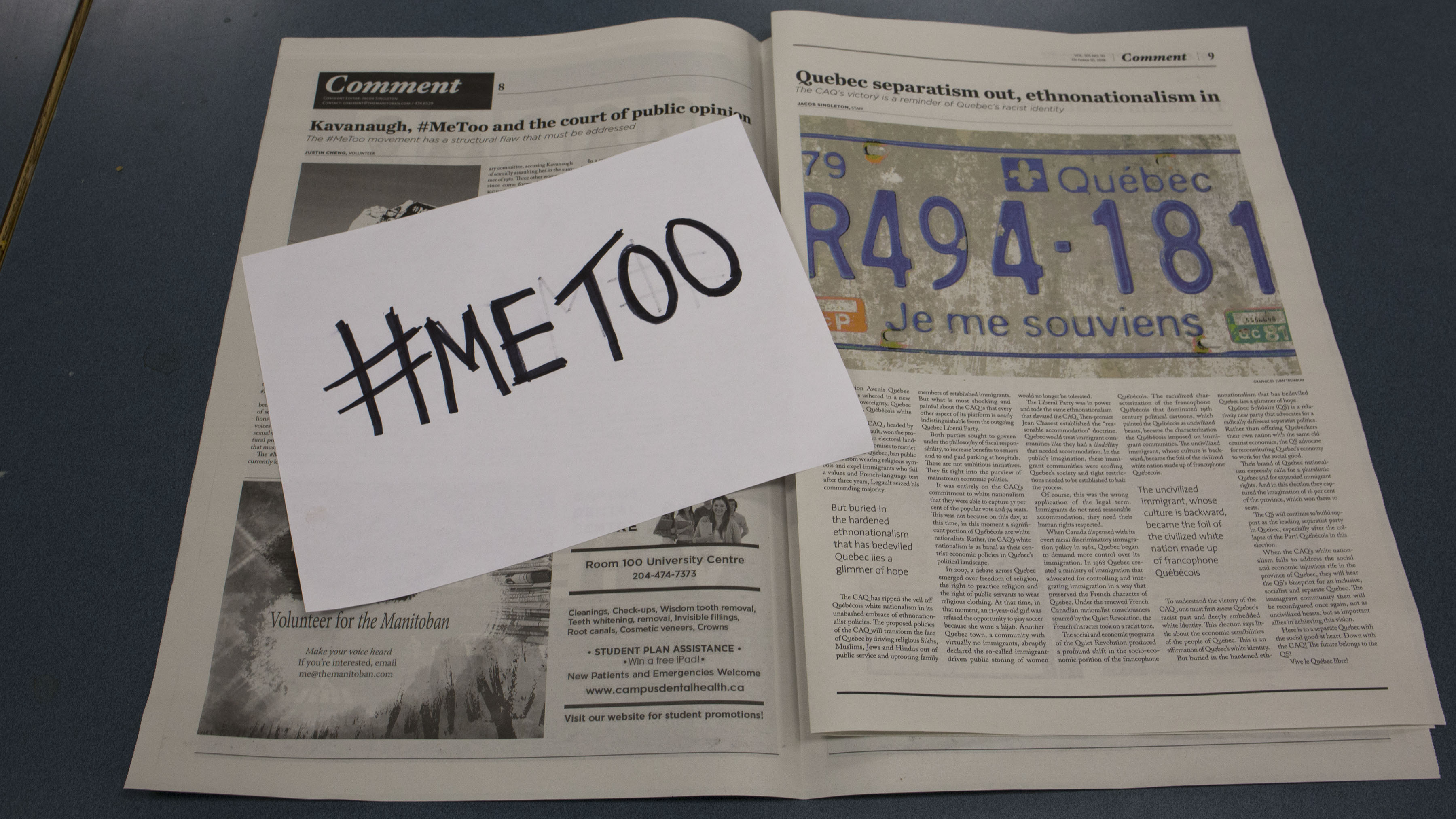On Oct. 6, 2018, Brett Kavanaugh was nominated to the Supreme Court of the United States with a vote of 50-48. For Kavanaugh, his family and supporters it was a victory. For survivors of sexual violence it was yet another loss.
The #MeToo movement caught on like wildfire over social media in October 2017. Survivors of all forms of sexual violence came together, publicly sharing their experiences of sexual violence to bring awareness of how deeply rooted the issue is.
The movement’s success in calling out sexual misconduct by individuals like Harvey Weinstein has been met with criticism by those who feel the movement is an attack on the reputations of perpetrators.
The #MeToo movement gives a voice to those who have been robbed of their own.
One can be misled into thinking this newly found voice is given more credibility than the voice of perpetrators of sexual assault. But, such a belief is false.
Survivors’ stories are heavily scrutinized for details, picked apart to determine whether or not they are credible. By bringing forward allegations, survivors are re-traumatized, re-evaluated and rearraigned, all under the intense gaze of the public eye.
In Kavanaugh’s case, some have asserted the voices of the #MeToo movement unfairly tilted the court of public opinion to the side of Kavanaugh’s alleged victim, Christine Blasey Ford. But as the Supreme Court nomination shows, that is not the case.
The accused are not the victims in this type of allegations until the allegations are proven to be false. It takes courage to withstand the nearly insurmountable scrutiny faced by victims who come forward.
Equally courageous are the survivors who suffer silently.
We owe it to the men in our lives to publicly condemn systemic rape culture. And we owe it to the women in our lives to come down hard on perpetrators of sexual violence.
When we begin to give the reputation of perpetrators weight over those of the survivors, we engage in damaging rape rhetoric that is pervasive in our society. There has been little concern from detractors of the #MeToo movement about the fate of Ford’s reputation.
Ford will live her life harassed by those who reject her story while Kavanaugh will sit for life on the highest court in the U.S.
#MeToo’s impact on the lived experience of survivors is far reaching. It offers survivors hope, respect, allegiance and a medium through which they are no longer isolated or ostracized. A mass influx of voices, detailing the darkest truths to the public may be shocking to some and as a result one may be inclined to question the credibility of these truths.
It is fine to play devil’s advocate as a tool to test veracity and seek transparency. However, if the devil’s advocate is never satisfied despite the weight of argument and evidence, the entire exercise was never about improving the discourse.
It is also important to remember that not all devils need advocates because at the end of the day some devils are just devils. They don’t require advocacy. They require retribution.





